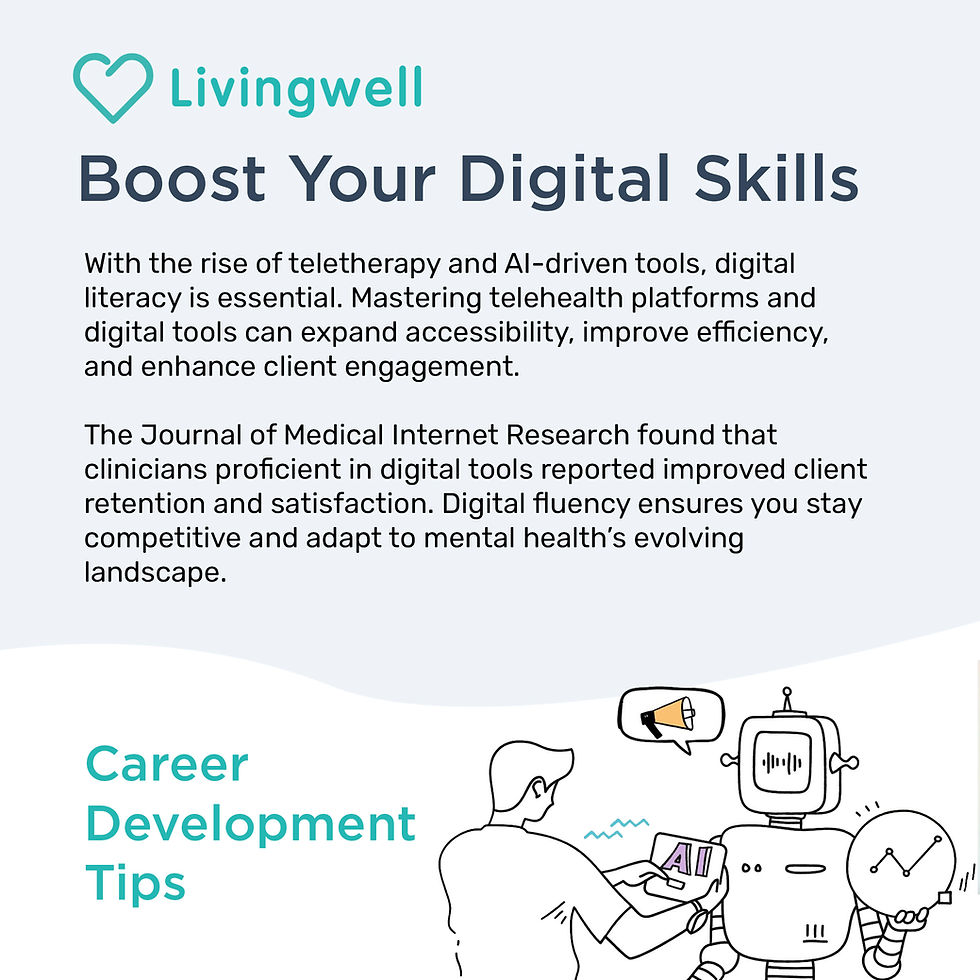Improve Crisis Intervention
- Oct 13, 2025
- 2 min read

For mental health professionals, proficiency in crisis intervention is a non-negotiable skill. The ability to respond calmly, humanely, and effectively during a mental health crisis is crucial for client safety, positive outcomes, and the overall integrity of the care system.
The Role of the Clinician in Crisis Response
Crisis intervention is a specialized skill set aimed at de-escalating emergency situations and connecting individuals in crisis with appropriate mental health resources.
Prioritising Safety and Humanity: Effective crisis intervention training aims to reduce the risk of injury and ensure a more humane and calm approach during an emergency interaction.
Resource Coordination and Diversion: Clinicians are key to coordinating with first responders and local community mental health resources. The goal is often pre-arrest diversion from jails into appropriate psychiatric facilities or mental health settings.
Reducing Stigma: A compassionate, competent crisis response acts as a powerful agent for overcoming negative stereotypes and stigma associated with mental illness.
Strategies for Advancing Crisis Intervention Skills
Continuous learning and systems awareness are essential for improving your crisis intervention capabilities:
Specialised Training: Invest in specific training programs like Crisis Intervention Team (CIT) training, or other programs focused on mobile crisis units, to gain specialized skills in responding to crises involving mental illness.
Understand Different Models: Familiarize yourself with the various models of crisis response, such as police-based specialized responses or mental-health-based mobile crisis units, to understand the ecosystem of care.
Focus on De-escalation: Develop and practice advanced verbal de-escalation techniques that help to stabilize the situation, prioritize safety, and build a rapid, temporary rapport with the client.
Goal-Oriented Response: Understand that the immediate goal in a crisis is often diversion into a safe environment, facilitating access to services, and providing support that is friendly to the individual and their family.


